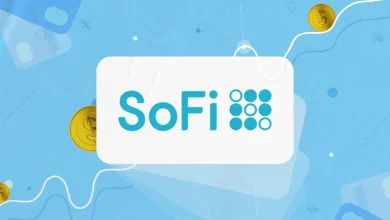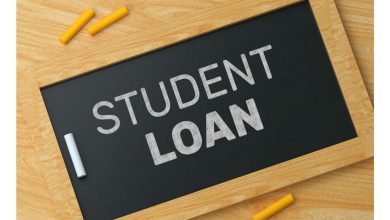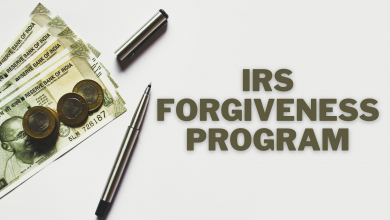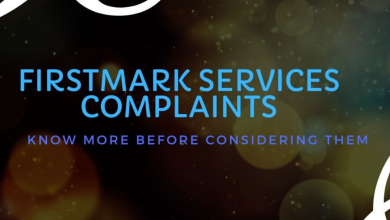Debtor’s Nightmare: Student Loan Default (Solved)

The borrowers of student loans pile up debt, hoping they’ll graduate with the degree they need and land more employment shortly. However, many people struggle to repay debt due to insufficient income or unplanned situations such as the epidemic. It’s not a surprise that, at the moment, about 15 percent of those who borrow are in debt. Each year, more than a million students fail on their obligations. Although the reasons are understandable, defaulting can cause many inconveniences for borrowers. So, borrowers must be proactive in taking the necessary steps to prevent or get rid of student default quickly.
This guide will go over the defaulting on loans in great detail and offers strategies to minimize the negative consequences; however, if you have difficulty attempting to handle the default issue, Contact our debt experts.
The Nightmare: Defaulting
Student loan default does not happen immediately. If you are consistently late with your payments, you’ll initially face a delinquency procedure. If you don’t respond to notifications, your loan will likely fail. So, you’ll have ample time to take the appropriate actions to avoid negative consequences.
Although we will explain the process of defaulting on loans in-depth and clarify your terms of reference, you could encounter difficulties. To ensure the best outcome, We recommend you seek out expert assistance. Specialists from third parties, such as those who work in student loan solved, will analyze your financial situation and help you find the best approach to solve your debt problems.
What is Delinquency?
We’ve said that the process of delinquency is initiated before default. What exactly is delinquency?
When you take out the loan, you are required to pay monthly. Each month, you will receive an invoice that outlines the amount due and when the deadline will be. If you miss your payment, your loan becomes delinquent. Also, loan delinquency is the condition of not paying. This status is in effect until you have made the payment. Therefore, if you’d like to stay out of the delinquency category, it’s enough to fulfill your debt.
However, you may be facing financial difficulties. In this scenario, making the required payment is not likely. So, a possible alternative could be to apply for the status of loan forbearance. The loan forbearance option allows borrowers to stop their repayment for a short period. However, your interest payment could be accruing.
Additionally, you can sign up for a new repayment plan. The income-driven repayment plans are renowned for their affordability. This makes it the best option for you if you face financial difficulties.
What happens if you cannot come up with a solution to the problem of delinquency? If you are in delinquency for 90 days after that, the servicing company will notify the most prominent credit agencies. In the end, your credit score is likely to decline. Be aware that those with poor credit scores are usually eligible for higher interest rates. It cannot be easy to obtain new credit lines, loans, and insurance.
What is the Student Loan Default?
Then, 90 days passed between the due date and due date, which is why your score declined. Now, your default on your student loan will result from delinquencies. In general, there are different deadlines for bankruptcy, based on the kind of loan. For instance, if you are a holder of Direct and FFEL loans, you’ll have to pay a penalty of 270 days after your due date. However, Perkins loan holders default when they miss deadlines. Thus, the requirements for Perkins loan borrowers are more complex.
If you have ignored the delinquency notice and have now defaulted, it is imperative to respond quickly. If you’re notified of default, you must contact your lender. When the borrower explains the situation with the loan servicer, they receive assistance. In some cases, they enroll in new loan repayment programs. If you take action swiftly, you will be able to avoid the adverse effects of a default on student loans.
Consequences of Default

We have recommended that you do not suffer the negative consequences to avoid defaulting on student loans. What are the adverse effects of default? In reality, default is not a way desirable. It affects the borrower’s capacity to access new financing options and lowers credit scores. People with poor credit are faced with numerous problems. They cannot locate a place to rent or get loans, or get insurance or even get a job because of their low creditworthiness.
However, there are some disadvantages. If you default, the entire outstanding debt balance is made immediately due. This means that you must pay the whole amount to eliminate the default. It is impossible to apply for forgiveness or loan deferment to avoid bankruptcy. In addition, you are not eligible for federal benefits or repayment programs.
If you default, the school may suspend the transcript. This means that they may demand that you pay for the cost of giving your transcript. Unfortunately, they cannot. The Education Department or the loan servicing firms cannot help you obtain the transcript. Thus, the issue of an official transcript is the school’s discretion.
Involuntary Repayment
In addition, loan servicers can collect payments using involuntary means. This means that even if you are not planning to pay them, they will get money from your employer or the Treasury Office. Also, your wages could be snatched, in which your employer is required to make a portion of your earnings and then pay it directly to the servicer who is granting the loan. In the event of a Treasury offset tax credit, your tax refunds, as well as other federal benefit payments, could be cut off to pay for the loan.
However, lenders may also sue you for violating the loan contract when you fail to pay back the loan. These conditions could create a worse situation since you may be held accountable for court and attorney’s costs.
Collection Agencies
If you discover that your loan has been transferred to a collection company, you should start worrying. These agencies have to pay to collect loans. Thus, the borrower is accountable for these expenses. In general, the collection costs could be as high as 18% of the balance on your debt. The cost is in addition to the original debt balance and interest payment. But, each agency has its own rules for the price.
If the loan is transferred, your collection agent will call you to request the repayment on your behalf. If you refuse to pay, the collection agency will attempt to collect the funds through an employee garnishment and Treasury offset. We will explore the options in more detail in the sections below.
Sometimes, borrowers fail to work, and there is no means to collect their payments. So, collection agencies are entitled to seek to challenge the debtor in the event of a default on student loans. However, it is essential to remember that they cannot go further than legal actions. For instance, they can’t physically assault you or force you into making a payment.
Wage Garnishment
One way to collect payment in default on student loans is to use wage garnishment. This method involves a 15% cut of the debtor’s earnings. This means that the employer will be required to take 15 percent of your income to cover the loan. Remember that your disposable income is the amount that remains after deducting tax and social security payments. Your wages will be garnished until the total debt is paid or you remove the default status. In this article, we’ll show you what to do.
The Process and Your Rights
If you fail to fulfill your obligations, you have rights that differ in the event of wage garnishment. If there is a case of default on your student loan, you will be notified within 30 days of the process for garnishing wages. After that, you will be sent a letter to find the balance of the debt and your rights to make a voluntary repayment.
The borrower has the right to protest against the process of garnishing their wages. There are a variety of grounds for the refusal. For instance, you may claim that the amount of your debt is incorrectly stated or the default is incorrectly stated. Then, you could argue that you could face severe financial difficulties if you are forced to lose 15 percent of your disposable income. In the end, you may ask for a hearing to stop the process of garnishing wages.
You may lose your job if your employer is aware of your student loan default. Keep in mind that your employer doesn’t claim to bash you because of not paying your student loan.
How to Avoid Wage Garnishment?
The ability to stop wage garnishment is available in a variety of ways. First, a voluntary settlement can stop garnishments on wages. However, you must make your initial voluntary payments within 30 days of getting the notice of garnishment. If you are unable to pay to make the payment, you can ask for an appeal. You must seek an appointment before 30 days. Some people wait until they receive documents to request a hearing. However, you don’t need to wait for records because the 30-days have begun regardless of whether copies were not delivered.
Be aware that you’ll be responsible for the costs of the hearing. It is your responsibility to present your reasons for the disapproval to wage garnishment. In the event of a student loan default, if the trial is successful, the garnishment will cease for a period of one year. It typically takes 60 days to make a final decision. Hearings can be conducted face-to-face, over the phone, or only based on evidence. If your request fails, then the garnishment of wages could be inevitable.
Treasury Offset
Another result of defaulting on student loans can be Treasury offset. The loan payment can be collected through tax refunds and additional federal aid. In the event of default, you can ask the Education Department to ask the Treasury Department to hold your tax refund and other benefits to cover the loan repayment.
You will be informed of the Treasury offset approximately 65 days before. The notice will be sent to the address you last know. The balance will continue until the debt is paid off or default status is removed. Additionally, you have a right to ask for a hearing to oppose an offset ruling. As we have explained previously, the hearing goes well, and you can avoid offset.
How to Avoid Loan Default?
Yes, fixing default is a must. But, it’s best to avoid default from the beginning. When you get notice of delinquency, you should act quickly to be prepared to prevent bankruptcy. It is recommended to call the loan servicer you have chosen to work with and ask for assistance as soon as possible.
In addition, it is advised to be aware of the risk of loan default. When you receive the loan, you have to be thinking one step ahead. It is essential to review your expenses and figure out the amount you will need. Be careful not to request more than you require. Remember that you’ll have to repay your debt, along with interest. In addition, you have to pay back the debt even if you plan to finish your studies. So, try to lower the debt you have when you are granted the loan.
Monitor Repayment
When you get the loan, you can examine the repayment process using an online platform that the Education Department provides. You can review your payment as well as any incorrect information. Keep all of your documents in case errors occur; you can show your evidence.
Another solution that works is to maintain regular contact with services for your loan. If you encounter problems with your finances, you should contact the servicer right away to resolve the issue of default on your student loan. The loan servicer may alter your repayment plan, grant forgiveness, and so on. to help avoid bankruptcy.
If you have several loans, and it isn’t easy to track your payments, it is possible to combine your loans. Student loan consolidation lets you combine multiple loan types into one. In the end, you only have the same loan rate for repayment as an average weighted of all your current loans.
How to Resolve Default?
If a default on student loans is unavoidable, developing new ways to solve the problem is essential. In the event of default, you’ll be liable for adverse consequences, as we’ve discussed in this guide.
However, even if you fail, there are still ways to remove any default settings. One of the best options includes credit rehabilitation as well as consolidation.
As stated earlier, the entire amount is immediately due if you fail to pay. Therefore, you will be able to pay the whole amount without worrying about the consequences of default. But, it’s natural that borrowers struggling financially may not have the lump-sum amount to repay the debt. Thus, debt rehab and consolidation appear to be more efficient solutions.
What is Loan Rehabilitation?
Loan rehabilitation requires voluntary payments. If you’re a holder of FFEL and Direct credit, you will need to pay nine times within the period of ten months. The payments must be made within 20 days from the date of due. The amount you charge is calculated as 15% of the discretionary income you earn each month.
Perhaps even 15% could be too high for you. If this is the case, you should contact the loan servicer to alter the amount. If you cannot have to pay this amount, voluntary collection methods such as a wages garnishment and Treasury offsets can be continued. After a nine-month payment is received then the default status is eliminated. While default will not show on your credit report, the late fees are there.
What is Debt Consolidation?
Another way to avoid a student loan debt default can be debt consolidation. The consolidation process lets borrowers make repayment more accessible by combining several debts into one. For instance, you may consolidate the defaulted loans you have by registering in an income-driven plan to repay and pay only three installments. Also, the installments must be in consecutive order, in a total amount, and at dates.
Final Words
Every year more than 1 million students are in default. In these challenging times, due to the spread of the pandemic, students’ loan default gains more significance. This guide will explain the status of default and offer alternatives to reduce or reduce its risk.
If you are struggling with the concepts and aren’t sure which one is the most effective, we can help you by contacting our debt experts. Additionally, we offer the opportunity to assess your debt for free for borrowers to ensure you can talk about your debt issues with experts. Contact us today to stay away from the negative consequences of default as quickly as you can.







